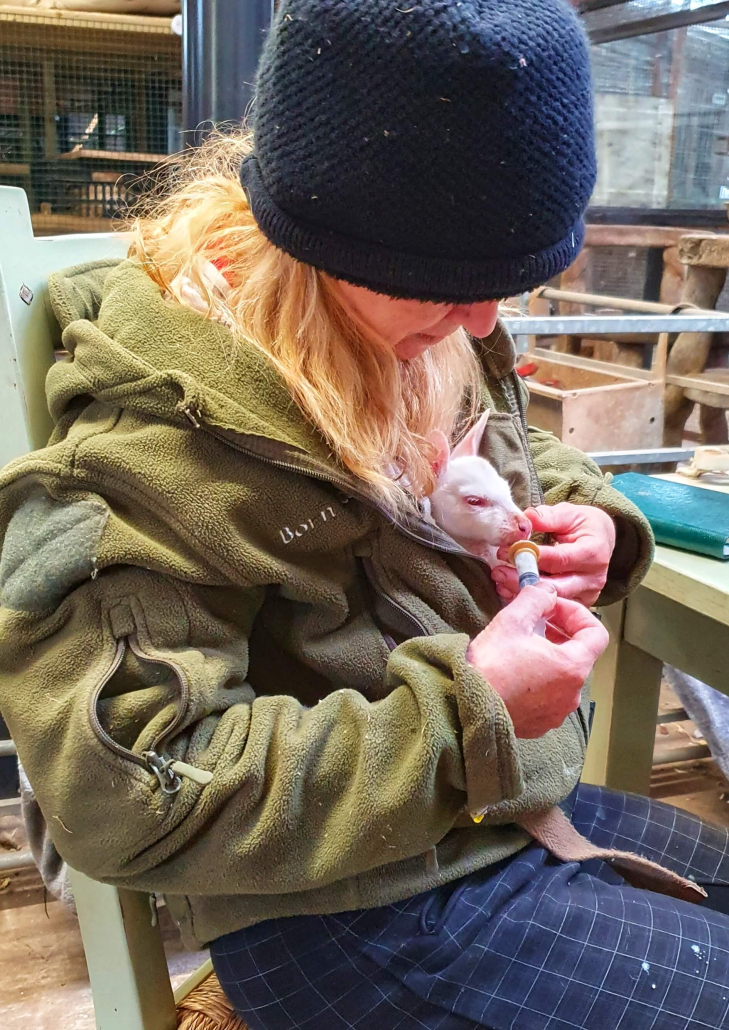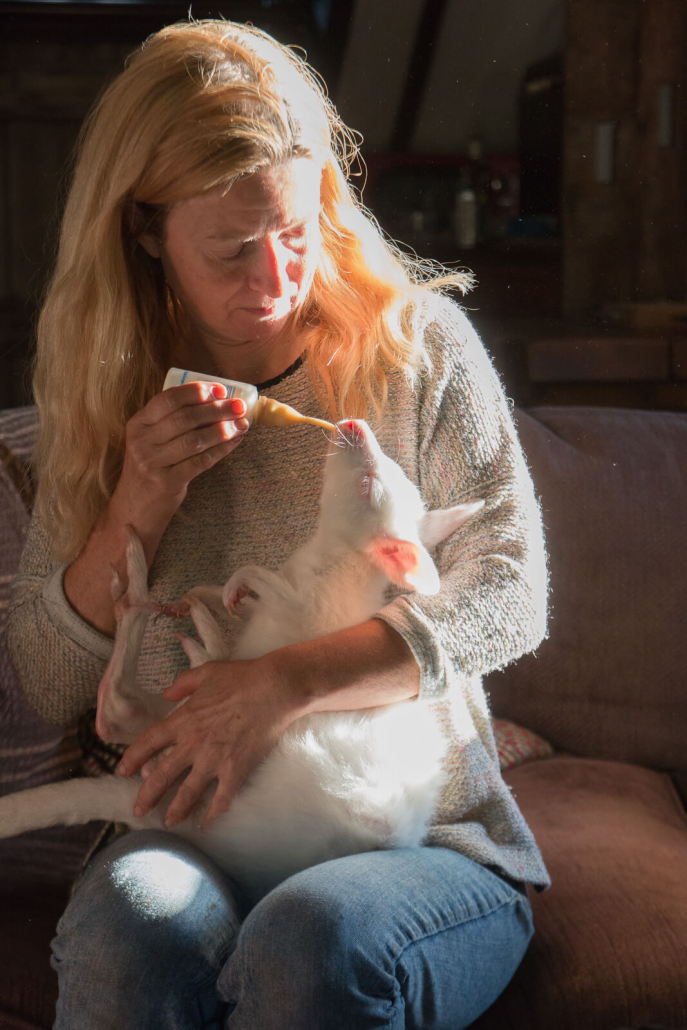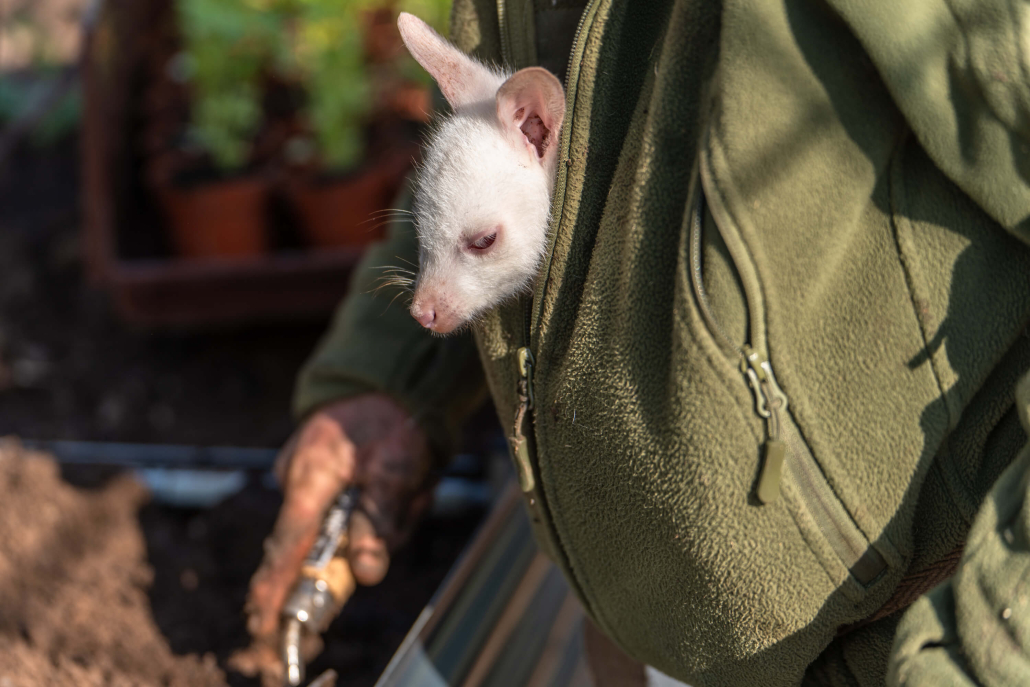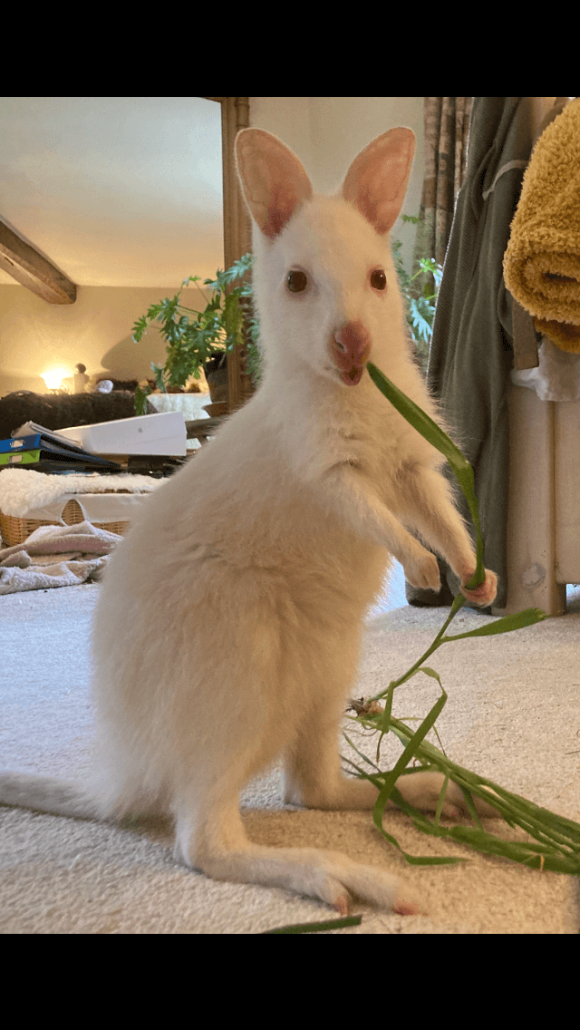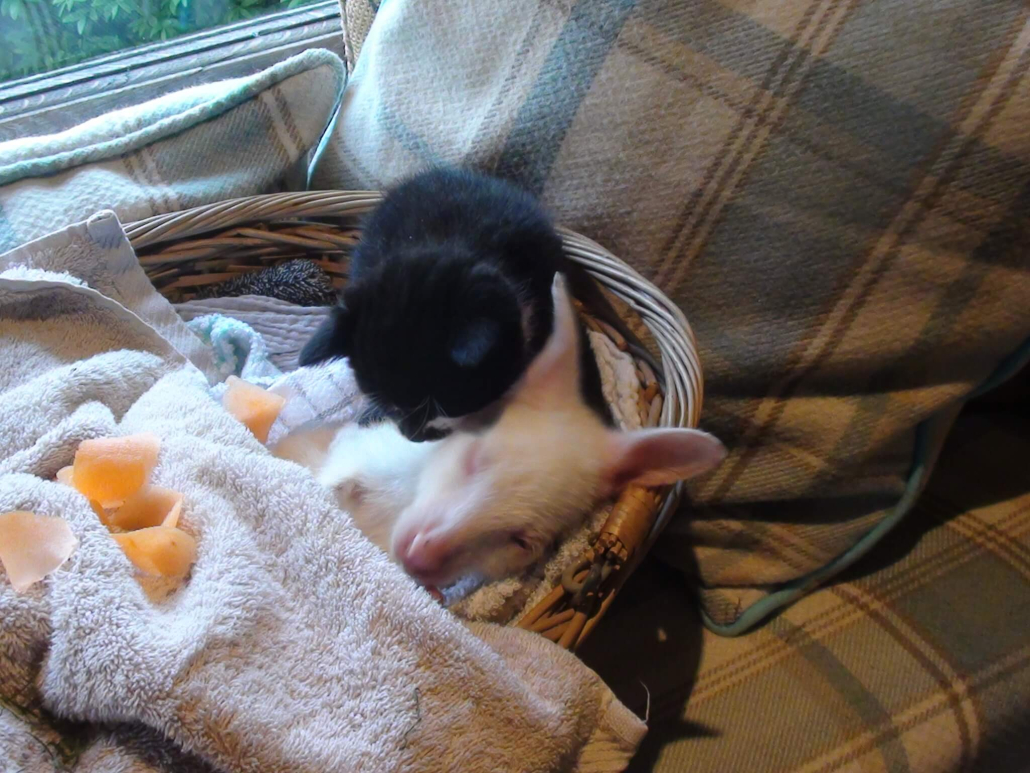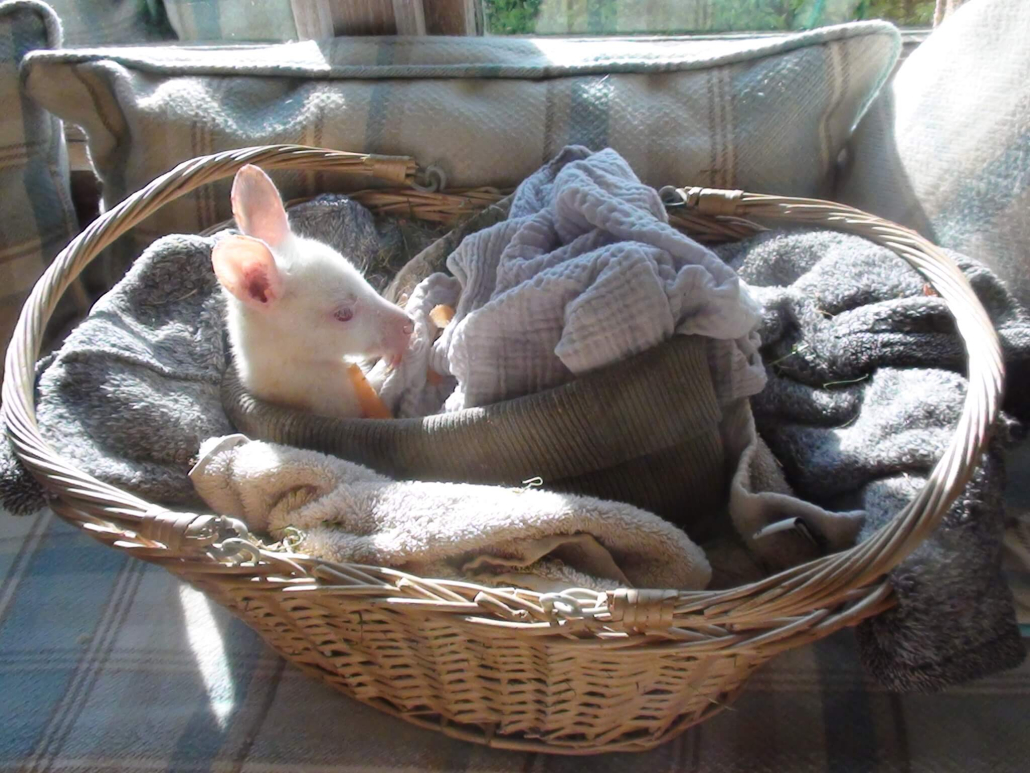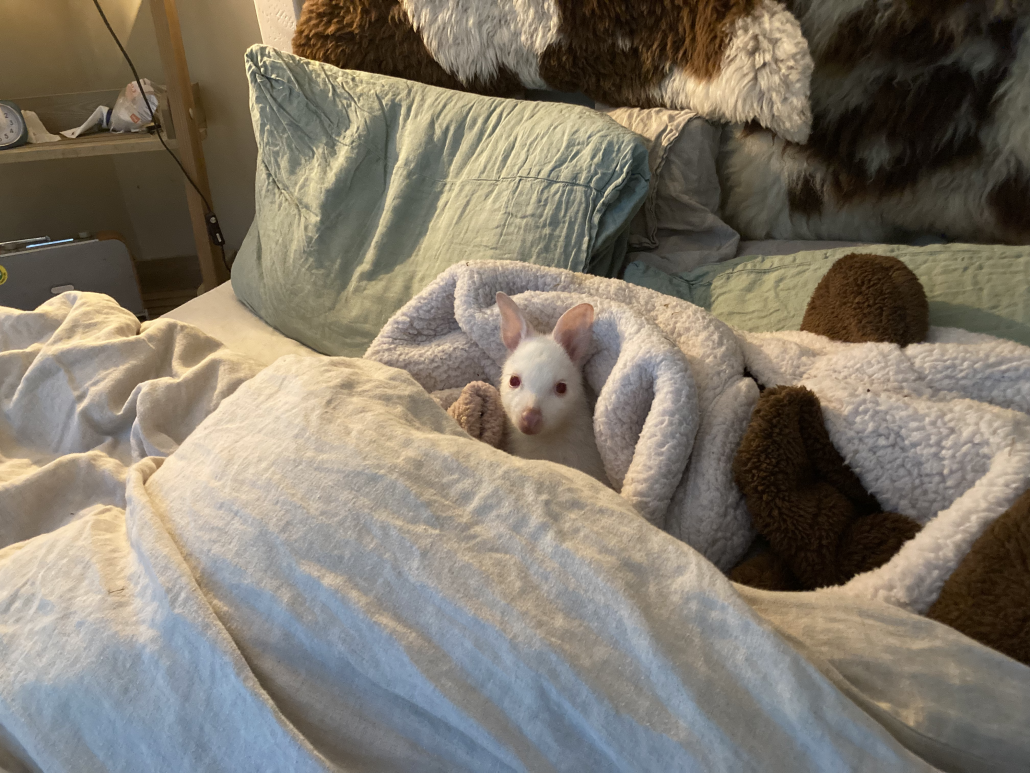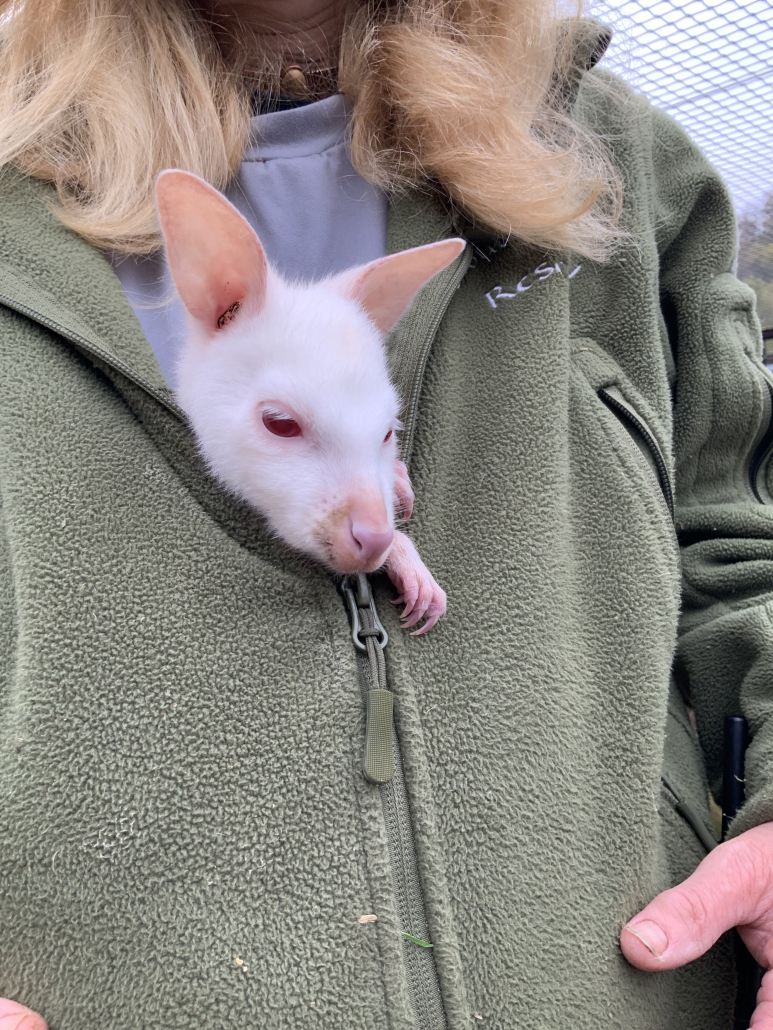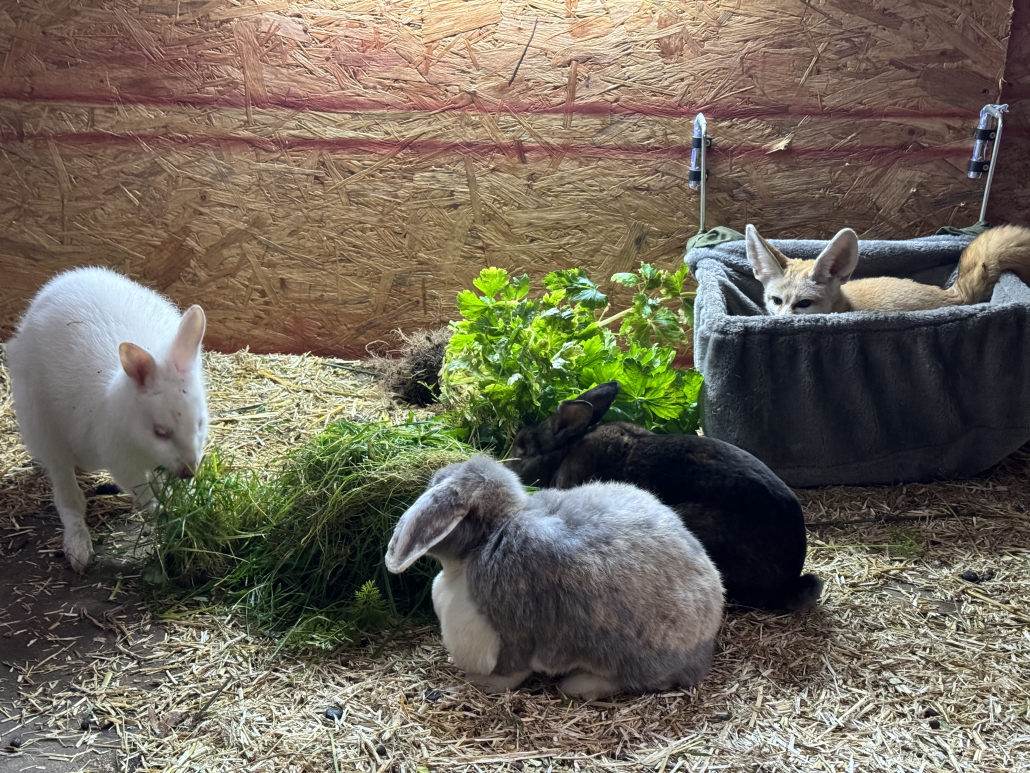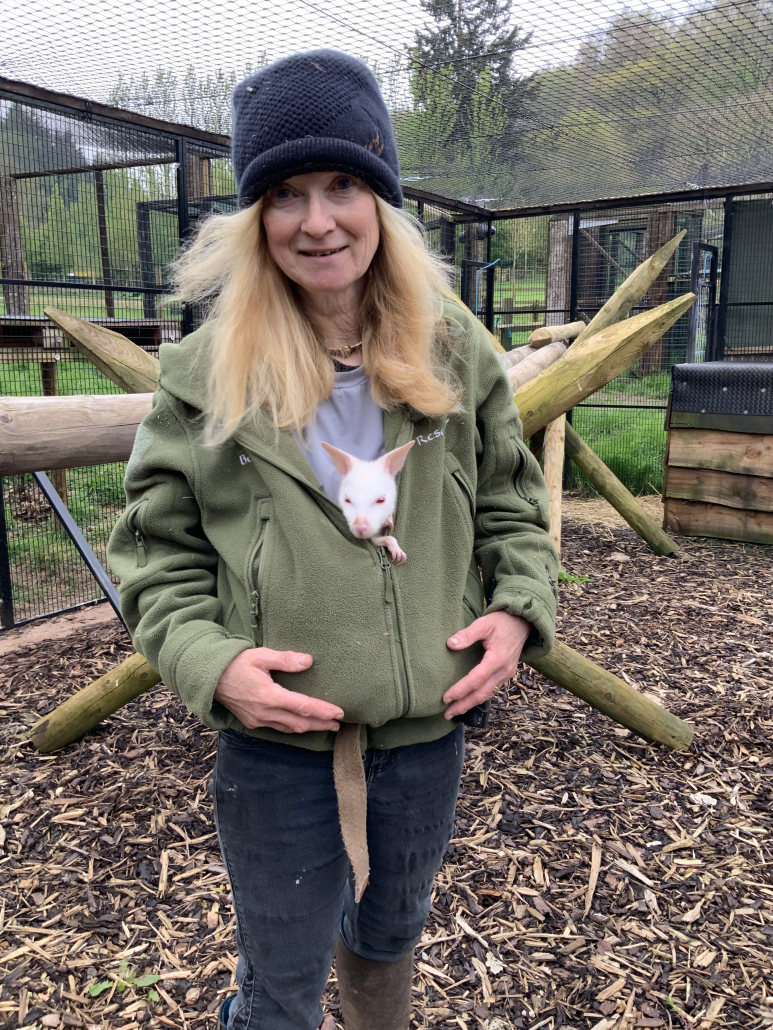Peanut
April 2023, I was cleaning the front yard when I saw Wallabies, Alpaca and Capybara running crazy in a field. Running scared was a little Joey. A high-risk point for a Joey is when they first come out of the Wallabies’ pouch. If anything prevents them from making a quick retreat back into the pouch they can be at risk of death as they can get cold very quickly, stressed and eaten by predators.
I got close to the Joey who was visibly stressed. The Joey was dangerously cold overall and inside the mouth, so must have been out of the pouch for some time. I got some Wallaby pellets and placed the Joey (with gloves on so not to change her smell) onto a pile of pellets in the field and stood back. I hoped this would encourage the wallabies to gather close to the Joey and the mother would accept the Joey back into her pouch. The Joey hopped towards every Wallaby but was rejected by all. I gathered the Joey up and knew that any further stress and continued coldness would mean death.
That is how Peanut, a female Joey, ended up being hand reared at WildSide.
First priority – get Peanut warm and destress her. I padded myself with self-adhesive heat pads, and extra layers of clothes. Wrapped in a warm cocoon and experiencing the typical movement (they are used to in the pouch) and the feel of my heart beat had her quickly settled.
Next priority. Get appropriate milk substitute (lactose intolerant) made up and blood warmth, into Peanut. Fortunately, I had the right milk power on site, 1ml syringes and long nipple feeders.
So began the very long ritual of feeding, at first drop by drop, every 3 hours day and night, then every 4 hours. Milk is a disaster if left on the skin, it burns and and cakes up the fur, so any spilt milk was washed off with warmed cosmetic wipes. To stimulate Peanut to urinate and poo she was gently stroked on her appropriate parts, sometimes before and after each feed.
Apart from the huge commitment of time, and total lack of sleep, Peanut was an easy Joey to care for and so far, has not had a day’s illness. She bonded with me very rapidly.
I found T shirt pouches for human babies and got a load so Peanut could be safely carried around with no danger of falling out. I also wore adhesive heat pads to better simulate the warmth of the Wallaby pouch. I have never sweated as much. I carried Peanut around all day. I got a dab hand at going to the toilet with Peanut attached to me. At night time she was at first attached to me in a pouch in bed and as she got a bit older, she snuggled in a pouch beside me in bed.
As she got even older, she used to hop out of the pouch snuggle by my face and lick it till I woke up, fed and attended to her. I ended up not needing the alarm clock as Peanut dictated her feed times. Peanut gradually took more and more time out of the pouch, as she would in the wild. Always heading back to the pouch when she was tired or something scared her.
By ten months a Joey will start to be out for the majority of the time even if they still stick their head back into the pouch for a drink of milk. The Mother starts to push the Joey out too as by now they are pretty large to be carried around. I mimicked this process and had Peanut out of my pouch for longer and longer.
Ade made an enclosure up in the warm barn, with some hanging up pouches, where Peanut could see me preparing food but was free to hop around. In the wild, at this stage of progress, mum and Joey would still stay close by.
Peanut will end up in the field she was taken from with lots of other species so getting her comfortable with lots of other animals is essential. She first had a dog, Scruff, who helped me by licking her clean. She also had time with a kitten that passed through to a new home and a rabbit and a Fennec fox to bond with.
Her ultimate integration with the Wallabies will take place once she is familiar with a larger outdoor space and the interactions with the other Wallabies through a boundary are settled and positive.
